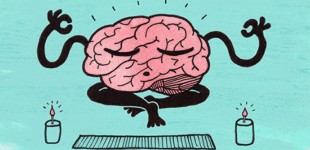Is Daylight Savings Time Bad for your Health?

On Sunday, March 13th we “sprung forward” and set our clocks ahead one hour. Pioneered by Benjamin Franklin, daylight savings time (DST) is an old practice aimed to lengthen the daylight hours as the seasons change.
The practice seems outdated, considering we no longer use candles or lamps for illumination. But for whatever the reason, most of the country still observes daylight savings time (with the exception of Hawaii and most of Arizona).
If you’re like me, that one-hour shift messes with your sleeping and eating patterns and can be a real headache for a day or two. According to a recent study, however, daylight savings could be a serious health risk.
Researchers in Finland found that the overall rate for stroke went up by 8% during the two days immediately following the shift. In addition, cancer patients were 25% more likely to suffer a stroke and the elderly were 20% more like to suffer a stroke.
The study compared the rate of stroke between the following two groups:
• 3,000 individuals hospitalized in the week following the time shift
• 11,000 individuals hospitalized two weeks before the shift
“Stroke risk is highest in the morning hours,” explains study author Dr. Jori Ruuskanen. “Previous studies have also shown that the disruption of the circadian clock due to other reasons and sleep fragmentation are associated with an increased risk of stroke. However, we did not know whether stroke risk is affected by DST transitions. What is common in these situations is the disturbed sleep cycle, which the immediate mechanisms for the increased risk are unknown at the moment.”
These risks diminish after a few days as our circadian clocks adjust to the new time. Ruuskanen and his team will present their findings this April at the American Academy of Neurology’s annual meeting.
This isn’t the first time.
 Other studies have warned of the potential dangers caused by “springing forward” and “falling back.” A 2012 study conducted at the University of Alabama Birmingham found that the overall rate of heart attacks went up by 10% during the two days following the shift.
Other studies have warned of the potential dangers caused by “springing forward” and “falling back.” A 2012 study conducted at the University of Alabama Birmingham found that the overall rate of heart attacks went up by 10% during the two days following the shift.
“It throws a monkey wrench into our circadian process,” says University of Washington’s Christopher Barnes. His studies focus on the effects of sleep deprivation – especially in the workplace.
“The following Monday, we’ve discovered that people have about 40 minutes less sleep. Because we’re already short on sleep to begin with, the effects of even 40 minutes are noticeable.”
Barnes published a paper in the Perspective on Psychological Science journal, citing multiple studies that link the following to the yearly removal of one hour:
• Workplace injuries
• Auto accidents
• Bad moral decision making
Barnes and co-author Christopher Drake suggest that DST should be eliminated in the best interest of America’s sleep health.
There are fewer negative results associated with the shift backwards in the fall, but people don’t tend to utilize that extra hour for sleeping. “Human beings aren’t built for 25-hour days,” says Barnes. “It throws people off because we’re working against our natural process.”
How to prepare
 To combat the negative effects of the time shift, the National Sleep Foundation recommends sleeping in late that Sunday morning and taking a nap that afternoon.
To combat the negative effects of the time shift, the National Sleep Foundation recommends sleeping in late that Sunday morning and taking a nap that afternoon.
These days, society tends to treat sleep like a necessary evil or a luxury rather than an important health issue.
“There are 70 countries that practice daylight saving time, so you have millions of people suffering from sleep deprivation,” says Barnes. “We work and live in a culture that tries to cram in so much activity. Because of this, everything else suffers. I always tell my students that sleep makes everything better: your work, your life, your health and your relationships.










